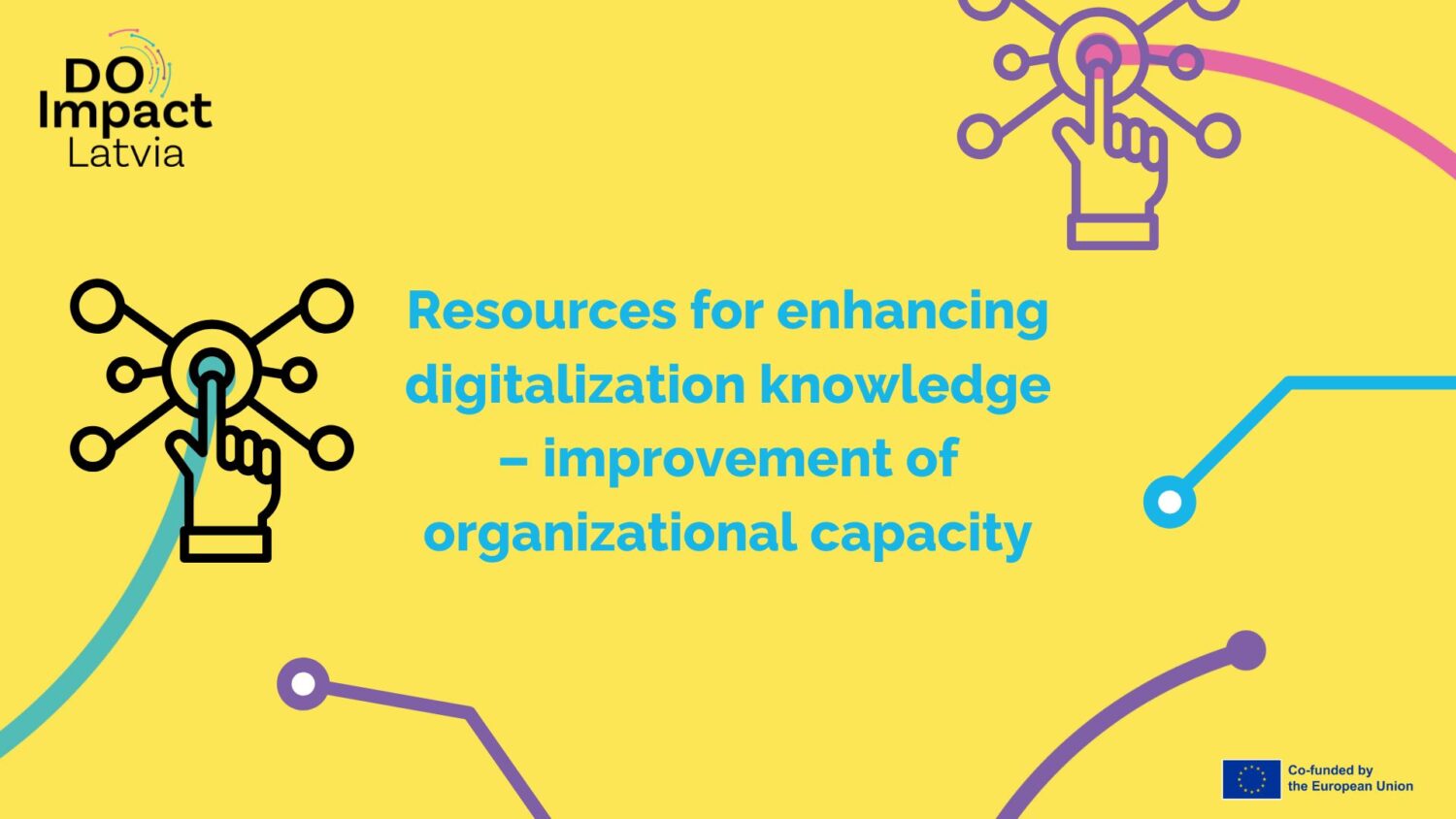Blog author: Social Entrepreneurship Association of Latvia (SEAL)
The beginning of autumn was marked by the webinar “Resources for enhancing digitalization knowledge – improvement of organizational capacity”, the 3rd local workshop organised the 4 September by SEAL under the DO Impact Digital Program in Latvia. It addressed social entrepreneurs and organizations to talk about current growth opportunities in the field of digitalization—whether by improving their own and their employees’ skills and knowledge, entrusting their website to professionals, or developing new plans and strategies together with mentors.

Among the presenters were representatives from Accenture, RTU Design Factory, Riga Municipality Business Support Contact Point, and Riga Business School. During the webinar, participants could get answers to their questions about the opportunities and programs offered by these organizations, which could later be applied in their own digitalization processes.
Accenture representatives introduced the FutureTech Internship project, organized in cooperation with Riga Technical University (RTU). Experienced IT specialists from Accenture act as mentors, and under their guidance RTU students look for solutions to clients’ digitalization challenges. For the second year in a row, Accenture has successfully collaborated with SEAL, giving association members exclusive access to this opportunity by submitting their needs—which can range from improving website accessibility to creating a recipe AI generator, a digital game, and more. For SEAL members, this service is free of charge.
Following last year’s successful collaboration, where digital solutions were developed for six SEAL members, the partnership between SEAL and Accenture continues. With this webinar, new clients were sought for the project’s second season.
“I can share our experience of working with Accenture and RTU. We are very pleased and grateful for such an opportunity, and we value the effort that has been invested. The young people are highly motivated, and their work capacity is impressive,” said social entrepreneur Oskars Grīslis, social enterprise “Intelligence Development Center”.
RTU Design Factory, in collaboration with SEB Bank, has created a Growth Program that offers development opportunities aimed specifically at supporting small and medium-sized enterprises. The program is divided into three levels, depending on the entrepreneur’s previous experience and knowledge. In practical workshops led by professional mentors, participants can gain new knowledge, improve internal processes, implement digital solutions, or even develop new products and enter new markets. Read more here.
Meanwhile, Riga Municipality offers a grant program for social enterprises to improve accessibility in both physical and digital environments. The total funding for this program is 60 000 euros, and one company can receive a grant of up to 15 000 euros, covering 90% of eligible costs. Accessibility improvements include construction elements and related documentation, expert accessibility assessments, adapting premises, as well as improving a company’s website accessibility.
At the end of the webinar, Riga Business School presented the learning platform LIFT, which offers practical courses on a wide variety of current topics that affect companies today. The offered course topics include digital marketing, artificial intelligence for business growth, presentation skills, project management, and more. Thanks to support from the EU Recovery Fund, companies can receive full financial support for any course, meaning they only need to pay the VAT part. Read more here.
Digitalization is often a decisive factor in determining a company’s long-term competitiveness. An aesthetically appealing appearance, modern and engaging communication with audiences, and efficient management of internal processes are vital aspects that cannot be neglected when thinking about business growth. Organizations that provide growth opportunities are interested in cooperating with the non-governmental sector and social enterprises, so that they can also reflect social responsibility in their public communication.
